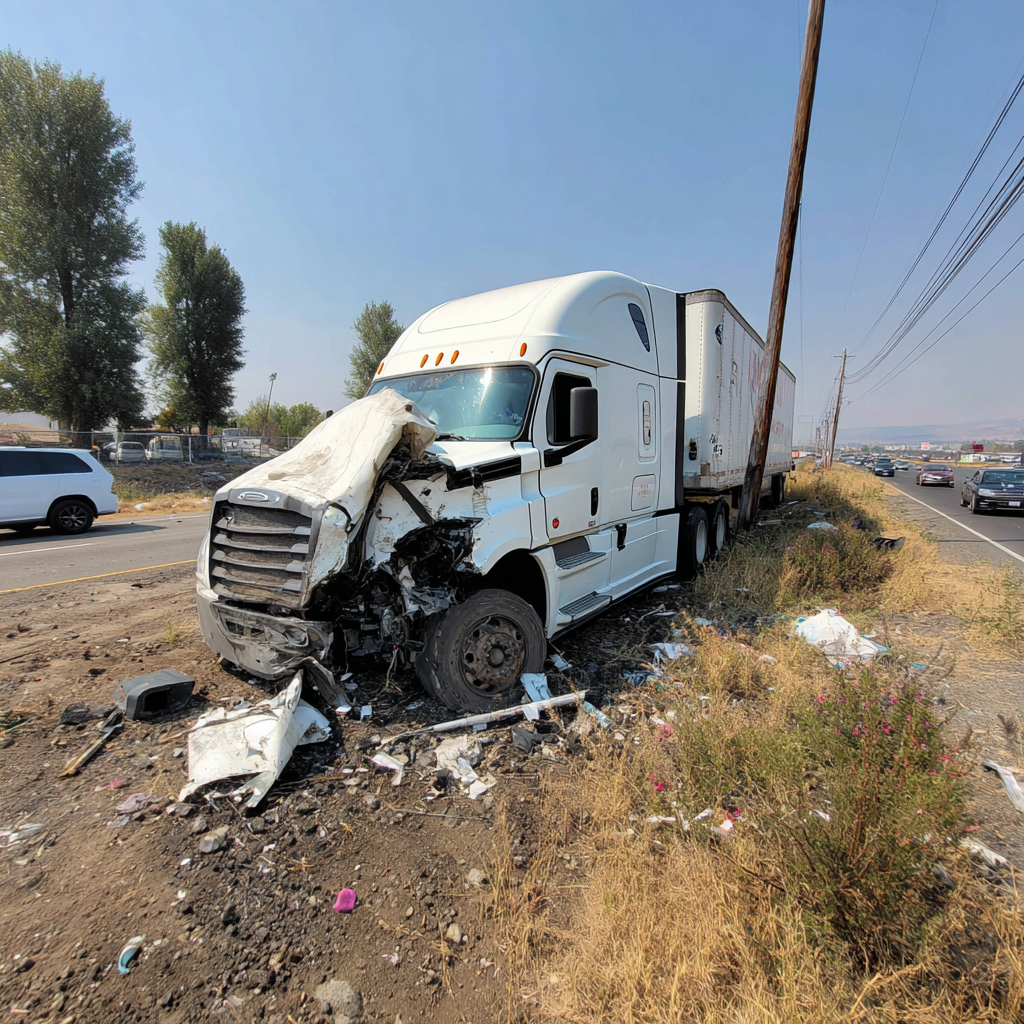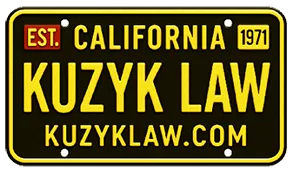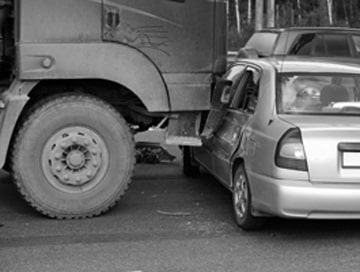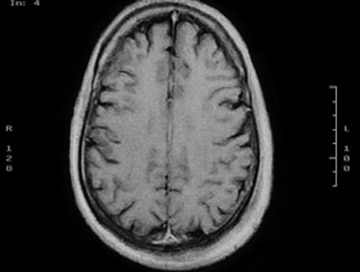Bakersfield sees more trucking accidents than most California cities because of its location at the crossroads of Interstate 5 and State Route 99, along with the city’s reliance on agriculture and oil industries that generate constant truck traffic.
The city sits in one of the busiest freight corridors on the West Coast. At the same time, local industries add thousands of additional truck trips daily through urban areas not designed for such heavy commercial vehicle traffic.
Several factors make Bakersfield particularly dangerous for truck accidents, including aging highway infrastructure, hazardous weather conditions like Tule fog that’s unique to the Central Valley, and the mixing of long-haul truckers with local agricultural and oilfield vehicles.
If you’ve been injured in a truck accident in Bakersfield, understanding these risk factors can help explain why your collision occurred and who may be legally responsible for your injuries and damages.

Why Truck Crashes Are More Common In Bakersfield
Bakersfield’s location makes it one of the state’s most dangerous hubs for truck accidents, with freight corridors, local industry traffic, and commuters all sharing the same roads.
This location brings thousands of commercial trucks through the area every day. When you combine this heavy truck traffic with local commuters, agricultural workers, and oil industry vehicles, the chances of a serious accident increase dramatically.
The local economy makes the problem worse. Bakersfield’s agriculture and oil industries rely heavily on trucking to move their products. This means more trucks on local roads, not just passing through on the highways.
Strategic freight location:
The city is at the intersection of State Route 99 and Interstate 5.
Heavy local industries:
Agriculture and oil operations generate constant truck traffic
Aging infrastructure:
Many roads weren’t designed for today’s truck volumes
Weather challenges:
Tule fog creates dangerous driving conditions unique to the Central Valley
How Highway 99 And I-5 Drive Heavy Truck Traffic
These two highways are freight corridors. A freight corridor is a significant route used primarily for moving goods across long distances. Highway 99 and Interstate 5 carry more truck traffic than almost any other roads in California.
The volume of trucks on these highways is staggering. On any given day, thousands of big rigs travel through Bakersfield carrying everything from produce to manufactured goods.
SR-99 Interchanges And Bottlenecks
State Route 99 has several design problems in the Bakersfield area that pose safety risks. Many on-ramps are too short, forcing cars to merge quickly with fast-moving truck traffic.
Poor lighting makes it hard to see stopped or slow-moving trucks at night. Traffic compression points create bottlenecks where accidents are more likely to happen.
The most dangerous spots include areas where multiple lanes merge suddenly. These create conflict points where trucks and cars compete for the same space.
I-5 Through Traffic And Long Hauls
Interstate 5 carries long-haul trucks traveling the entire length of the West Coast. These drivers often arrive in Bakersfield after navigating the steep Grapevine Pass, which can be exhausting.
Hours of service regulations limit how long truck drivers can work. These federal rules are designed to prevent fatigue, but pressure to meet delivery deadlines sometimes leads to violations.
Fatigued drivers are much more likely to cause accidents. When a tired truck driver makes an error, the consequences are often catastrophic.
How Agriculture And Oilfield Freight Raise Crash Exposure
Bakersfield’s two biggest industries create additional truck traffic that other California cities don’t experience. Agriculture requires moving massive amounts of produce during harvest seasons, increasing the risk of 18-wheeler accidents as these large trucks navigate between farms and distribution centers.
The oil industry needs constant truck traffic to service wells and transport petroleum products. This industrial truck traffic operates on different schedules than typical freight, often during off-peak hours when drivers might be less alert.
During harvest season, agricultural truck traffic on Bakersfield’s local roads can increase three to four times, adding even more congestion and crash risk.
| Industry | Peak Season | Truck Types | Main Routes | Risk Factors |
| Agriculture | May-October | Flatbeds, refrigerated trucks | Rural roads to SR-99 | Time pressure, overloaded vehicles, seasonal drivers |
| Oil & Gas | Year-round | Tankers, heavy haulers | Oilfields to refineries | Hazardous cargo, heavy equipment, frequent stops |
Where Trucking Accidents Happen In Bakersfield
Truck accidents don’t happen randomly throughout the city. Specific locations experience significantly more crashes than others due to traffic patterns and road design.
Highway interchanges are particularly dangerous because they force different types of traffic to merge over a short distance. Surface streets with heavy commercial activity also see frequent accidents.
Highway And Interchange Hotspots
The most dangerous highway locations in Bakersfield include several specific interchanges where design problems create ongoing safety issues.
The SR-99 and Ming Avenue interchange handles enormous volumes of both truck and passenger car traffic. High-speed merging in this area leads to frequent accidents.
The SR-58 and SR-99 junction requires drivers to navigate multiple lane changes in a complex interchange design. Driver confusion and high speeds make this area particularly hazardous.
Other high-risk areas include:
- I-5 and SR-166 split south of Bakersfield
- SR-99 and Rosedale Highway interchange
- Highway 58 and Cottonwood Road intersection
- SR-99 and Panama Lane area
Urban Corridors And Intersections
City streets that carry heavy truck traffic are also common locations for accidents. These roads weren’t designed for large commercial vehicles, but industrial development has made truck traffic unavoidable.
Rosedale Highway carries trucks to and from oil industry facilities. Union Avenue serves agricultural processing plants and distribution centers.
California Avenue connects industrial areas to the highway system. These roads see constant truck traffic mixed with regular commuter vehicles.
What Causes Most Bakersfield Truck Crashes
Speeding And Following Distance
Truck drivers face constant pressure to meet delivery deadlines. This pressure can lead to speeding, especially on long stretches of highway like I-5 and SR-99.
Following too closely is another major problem. Safe following distance for a truck is at least one second for every ten feet of vehicle length. A typical tractor-trailer is about 70 feet long, so it should maintain at least seven seconds of following distance.
Many truck drivers don’t maintain adequate following distance because they’re trying to make up time or because other vehicles constantly cut in front of them.
Fatigue And Hours Of Service Violations
Federal law limits how many hours truck drivers can work without rest. These hours of service rules are designed to prevent fatigue-related accidents.
Electronic Logging Devices track driving time automatically. However, some drivers still find ways to exceed their legal driving hours, especially when pressured by dispatchers or tight delivery schedules.
Driver fatigue is particularly dangerous because it impairs reaction time and decision-making. A fatigued driver might not notice changing traffic conditions or might fall asleep at the wheel.
Distraction Or Impairment
Distracted driving can be dangerous for truck drivers as well as other motorists, mainly because of the size and weight of commercial trucks.
Cell phone use, eating while driving, and adjusting GPS or other electronic devices all constitute forms of distracted driving that contribute to truck accidents. Some crashes involve drivers who are impaired by legal prescription medications or over-the-counter drugs that cause drowsiness.
Alcohol and illegal drug use are less common but still significant factors in some truck accidents.
Maintenance Failures And Improper Loads
Trucking companies are required to maintain their vehicles and perform regular safety inspections. When companies cut corners on maintenance to save money, critical systems like brakes or steering can fail.
Pre-trip inspections are required by law, but some drivers skip them or fail to check their vehicles properly. Tire blowouts, brake failures, and steering problems can all lead to serious accidents.
Improper loading is another major cause of truck accidents. Overweight trucks are harder to control and take longer to stop. Improperly secured cargo can shift during transport, making the truck unstable.
Who May Be Liable In A Bakersfield Truck Accident
Truck accident cases are more complex than typical car accidents because multiple parties may share responsibility. This is different from a regular car accident, where usually only the drivers are involved.
Liability means legal responsibility for the accident and the resulting damages. In truck cases, several different companies or individuals might be liable.
Motor Carriers And Brokers
The trucking company that employs the driver is called a motor carrier. Under vicarious liability rules, employers are responsible for their employees’ actions during work hours.
Freight brokers are companies that arrange transportation but don’t own trucks. If a broker hires a trucking company with a poor safety record, the broker might also be liable for negligent hiring.
Many trucking companies classify drivers as independent contractors to avoid responsibility, but if the company controls how the driver works, it can still be held liable.
Shippers And Loaders
The company that owns the cargo being transported is called the shipper. If the shipper provides inaccurate information about the cargo’s weight or requires unsafe loading practices, they can be held liable.
Third-party loading companies that load trucks at warehouses or distribution centers can also be responsible if they overload the truck or fail to secure the cargo properly.
The bill of lading is a document that details the cargo being transported and its weight. This document is often crucial evidence in determining liability.
Maintenance And Manufacturers
Companies that perform maintenance on commercial trucks can be liable if they do substandard work or fail to identify safety problems during inspections.
If a defective part caused a truck accident, the manufacturer of that part might be liable under product liability laws. This could include tire manufacturers, brake system makers, or other component suppliers.
Maintenance records and inspection reports are critical evidence in these cases. They show whether proper maintenance was performed and whether any safety issues were identified but not fixed.
Public Entities For Dangerous Conditions
Sometimes, truck accidents are caused by dangerous road conditions rather than driver error. If a government agency is responsible for maintaining the road, it might be liable for the accident.
California Government Code Section 835 makes government entities liable for dangerous conditions on public property. However, claims against government agencies have special rules and shorter deadlines.
You must file a government tort claim within six months of the accident to pursue a lawsuit against a city, county, or state agency. Missing this deadline can prevent you from recovering any compensation.
What Evidence Proves Fault After A Truck Crash
Proving fault in a truck accident requires gathering evidence quickly before it’s lost or destroyed. Commercial trucks contain electronic systems that record valuable data, but this information can be overwritten if not preserved immediately.
The most crucial step is sending a preservation letter to the trucking company. This legal document requires them to save all evidence related to the accident.
ELD And ECM Downloads
Electronic Logging Devices track how many hours a driver has worked and when they took required rest breaks. This data can prove if a driver was violating hours of service rules when the accident happened.
The Engine Control Module is like a black box for trucks. It records data about the truck’s speed, braking, steering, and engine performance in the moments before a crash.
Dashcams And Nearby Surveillance
Many commercial trucks now have dashboard cameras that record the road ahead and sometimes the driver’s actions. These videos can provide clear evidence of what happened during an accident.
Your attorney can also request footage from nearby businesses, traffic cameras, or other vehicles that might have captured the accident. This evidence needs to be ordered quickly because many systems automatically delete old footage.
Bills Of Lading And Dispatch Records
Internal company documents often reveal pressure to violate safety rules. Dispatch records might show that a driver was told to exceed speed limits or drive longer than legally allowed.
Bills of lading indicate the type of cargo being transported and its weight. If the actual cargo was heavier than documented, it could indicate deliberate overloading.
Scene Evidence And Reconstruction
Physical evidence at the accident scene tells the story of what happened. Tire skid marks indicate where vehicles attempted to stop and how fast they were traveling.
Vehicle damage patterns reveal the angle and force of impact. Debris fields show how the vehicles moved after the collision.
What To Do After A Bakersfield Truck Crash
Report And Seek Medical Care
Call 911 right away. Even if you don’t feel seriously hurt, some injuries may not be immediately apparent. Seeking prompt medical care creates an official record of your injuries, which is vital for your case. Tell the doctors and paramedics exactly how you’re feeling.
Preserve Evidence And Witnesses
If it’s safe to do so, take photos and videos of the scene. Document the vehicle positions, property damage, and the truck’s license plate and DOT numbers. Get contact information from any witnesses.
Avoid Recorded Statements
When the trucking company’s insurance adjuster calls, politely decline to give a recorded statement. Insurers often use these to minimize their liability. Stick to the basic facts and don’t admit any fault.
Contact A Bakersfield Truck Accident Lawyer
Truck accident cases are complex. An attorney can send preservation letters to secure critical evidence and handle all communication with insurance companies. The sooner you contact a lawyer, the better.
Kuzyk Personal Injury & Car Accident Lawyers can immediately send preservation letters to ensure critical evidence isn’t destroyed. We can also handle communications with insurance companies while you focus on recovering.
What Compensation Can You Seek After A Truck Crash
A serious truck accident can be devastating, but you have the right to seek compensation for all the ways the accident has affected you. While money can’t undo your injuries, it can help you rebuild your life.
Medical Costs And Future Care
This includes all current medical expenses, such as emergency room bills, surgeries, and prescriptions. If you need ongoing physical therapy or long-term care, our legal team will work with medical experts to calculate and include these future costs in your claim.
Lost Income And Earning Capacity
You can recover lost wages from time missed at work.
If your injuries prevent you from returning to your job or limit your ability to work, we’ll seek compensation for your diminished earning capacity, representing the income you’ll lose over your lifetime.
Pain And Suffering
California law allows you to seek compensation for physical pain and emotional distress. These non-economic damages are based on how the accident has affected your daily life, and we will work to build a case that fully demonstrates the impact of your injuries.
Wrongful Death Damages
If you’ve lost a family member in a truck accident, you may be able to file a wrongful death claim. This type of case seeks compensation for the financial and emotional losses caused by your loved one’s death.
Wrongful death damages can include funeral expenses, lost financial support, and the loss of your loved one’s companionship and guidance. In California, spouses, children, and sometimes parents can file wrongful death claims.
At Kuzyk Personal Injury & Car Accident Lawyers, we are committed to helping you recover the full compensation you deserve. Contact us today for a free consultation.
How Comparative Fault Affects Your Claim
California uses a pure comparative negligence system. This means you can still recover compensation even if you were partially at fault for the accident.
Your assigned percentage of fault will reduce your final compensation. For example, if your total damages are $100,000 and a jury finds you were 20% at fault, you would receive $80,000.
Insurance companies often try to shift as much blame as possible onto accident victims to reduce their payouts.
How Long Do You Have To File In California
Time limits for filing lawsuits are called statutes of limitations. In California, you generally have two years from the date of the accident to file a personal injury lawsuit.
Missing this deadline can permanently prevent you from seeking compensation, regardless of the strength of your case.
You have six months to file a formal government tort claim if a government agency might be partly to blame for your accident, like if the road was dangerous. If you miss this shorter deadline, you could lose a crucial source of income.
Injured In A Bakersfield Truck Crash? Get Legal Help Today
If you or a loved one has been injured in a truck accident in Bakersfield, you don’t have to face the insurance companies and trucking corporations alone. The experienced team at Kuzyk Personal Injury & Car Accident Lawyers is here to fight for the justice and compensation you deserve.
We understand the unique challenges of truck accident cases in Bakersfield. Our attorneys know the local courts, the common causes of truck accidents in our area, and how to build strong cases against trucking companies and their insurers.
Our firm works on a contingency fee basis, which means you pay nothing unless we win your case. We advance all the costs of investigating and litigating your case, so you can focus on your recovery while we handle the legal fight.
Don’t let the trucking company’s insurance adjuster pressure you into accepting a quick settlement that doesn’t fully compensate you for your injuries. Contact us today for a free, no-obligation consultation to learn about your rights and options.












